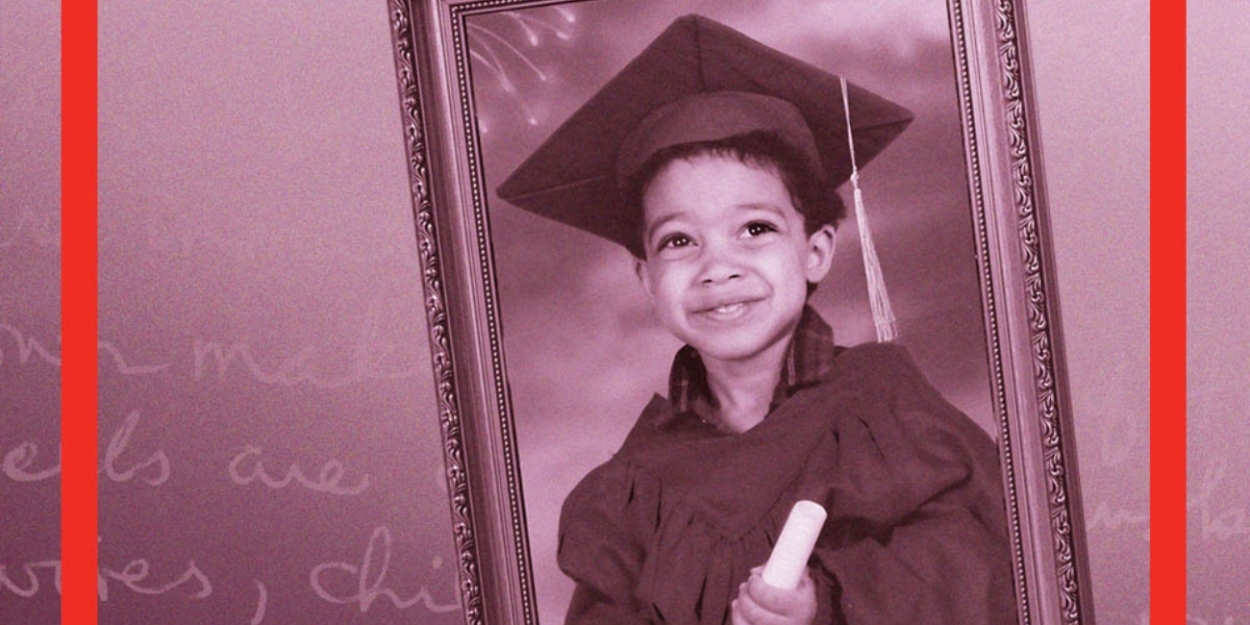Review: AS I MUST LIVE IT at Theatre Passe Muraille
Powerful mix of poetry, prose and projections tells a vital story

“I want to say what I want to say, how I want to say it.”
Sounds simple, right?
Maybe not, if you’re a Black man in Canada dealing with the stigma of familial mental illness.
Actor and poet Luke Reece spent a long time searching for his voice. The son of an Italian-Canadian woman and a Black man from Barbados, he struggled with a lack of media representation of families like his and questions of what his “hybrid” identity meant—"Isn’t a hybrid a car?” he muses. Reece’s life was further complicated in childhood by his father’s downward spiral after being let go from his job at Goodyear; he witnessed his father go from a proud, self-confident man to one struggling with OCD and bipolar disorder, eventually becoming unhoused.
Faced with silence from a community that didn’t wish to speak on the subject, the self-censure that came from his resulting need to be perfect, and the societal editing that comes with others’ expectations and stereotypes, it would have been easy for Reece to have lost his voice.
Instead, in AS I MUST LIVE IT, Reece’s poetic, autobiographical solo show at Theatre Passe Muraille, it’s clear that he’s found a voice that thoughtfully and lyrically grapples with the intricacies of life and identity. Reece’s narrative, beautiful from both a verbal and visual standpoint, is the type of immersive show that immerses you not just in design, but in a person’s soul.
Reece approaches us shyly in the lobby like a boy on the first day of school, joking and trying to make new friends by proffering items from a bright red backpack that matches his hat. This speaks to the mild level of audience participation during the show; Reece will ask audience members to hold things, pass a ball, silently read text, or help him balance during a stretch, but it’s always gentle and voluntary.
As he guides you into the Passe Muraille Mainspace, reworked with scattered seating in various permutations, he tells you that you’re welcome to move around at any point to see him better. This permission leads to the show feeling casually interactive despite being formally constructed. It’s a necessary freedom for the audience, because Reece uses the Jackie Chau-designed set and space to the fullest, starting in the middle on what looks like a rotating playground carousel that he methodically and symbolically takes apart before running up the stairs to perform a spoken-word piece on the balcony, or to take on the persona of Darth Vader (who was a Luke’s father, but not his own) on the catwalk. The amount of movement, directed by Daniele Bartolini, makes Reece’s story feel expansive and far-ranging, even while his text is laser-point specific.
Because of the play’s mostly-set but semi-improvisational nature, Reece warns us that his tale may take between 87 and 104 minutes (but absolutely no more), depending on how much energy we give him. That’s not a threat, but a contract: while the show is mostly Reece giving to us, he asks us to hold some of his experiences and pain in return for his artful words, his boundless enthusiasm, and even his joy.
Specifically, we’re asked to hold the source of the show’s title, which comes from three pages of material written by his father; after finding the philosophical pages hidden away, Reece felt a new connection to the man he hardly understood and attempted to reconnect. The result, like everything else in Reece’s life, was complicated.
Reece manages to navigate these complexities with grace, as he also navigates the complexities of slipping back and forth between prose and spoken-word poetry. He creates sections in the voice of a small child, an adolescent, and an adult, each well-defined and meaningful.
Wait for the hilarious piece about dinosaurs and the personal disappointment Reece feels over their extinction, which is particularly charming while subtly matching the show’s theme of feeling abandoned over something you could not control that happened before your time. Another poem, written as a letter to his mother over why she didn’t reclaim her name after the dissolution of her marriage, drips with a combination of hurt and a steadfast respect and pride.
Reece’s words are matched with closed captions and effective projection design by Barret Hodgson and Thom Buttery. Words spray over the audience’s heads and across the floor in script resembling Reece’s father’s writing, accentuated by stage haze and lighting by Sarah Mansikka, projections of family photos and falling rose petals, and the mirrored backings to some of the benches that provide audience seating, which reflect everything else. The sound design by Adrian Bent is also notable, providing a stirring, film-like emotional backdrop to some of Reece’s lengthier pieces.
AS I MUST LIVE IT stands in the fine tradition of the one-person, coming of age show, but at the same time, it’s wholly its own. It’s given Luke Reece a voice, and for his 87 to 104 minutes, he uses it to the fullest.
It’s what he must say, as he must say it.
AS I MUST LIVE IT poster featuring Luke Reece designed by Emily Jung
Reader Reviews
Videos

